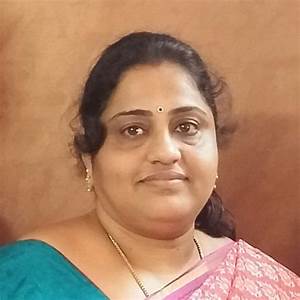
- Name : Prof. D. Lalitha Bhaskari
- Designation : Head of the Department
- Phone :
- Email :
PROFILE
The Department of Information Technology and Computer Applications was formed in the academic year (2018-2019). This department offers one U.G. program (B.Tech. -Information Technology) , Three P.G. programs (M.Tech. - Information Technology, Master of Computer Applications (MCA), M.Sc. (Computer Science) and Doctoral programme(Ph.D). The Department of Information Technology and Computer Applications has designed a curriculum to apply concepts of Information Technology in collaboration with various inter disciplinary areas. The aim is to create IT professionals with good knowledge on core computer science subjects and skills meeting the current needs of the industry. The department has good infrastructure, computing equipment and laboratories. The faculty of the department have rich teaching and research experience. The students are admitted through a state level common entrance examination. Even though it is an young department , students are well placed in reputed software companies and department is very active in organizing workshops, seminars and training programs. The programs offered in the department meet requirements of both the industry and academia
NAAC Presentation
Programs
| Name of Program |
|---|
| B.Tech. (Information Technology) |
| M.Sc. (Computer Science) |
| M.Tech. (Information Technology) |
| Master of Computer Applications (MCA 2- Years) |
| Ph.D |
Programme Educational Objectives (PEOs)
- PEO1: Apply Concepts of Computer Science blended with mathematics and engineering to model computing systems.
- PEO2: Based on requirement specifications, Design, implement, test and maintain software systems.
- PEO3: Communicate effectively with team members, engage in applying technologies and lead teams in industry.
- PEO4: Assess the Systems from quality, security, privacy, cost, utility, etiquette and ethics view point.
- PEO5: Adapt to changing professional and societal needs by engage in lifelong learning, and career enhancement.
Programme Outcomes (POs)
- PO1: Able to apply knowledge of computing, mathematics, & engineering principles.
- PO2: Able to identify, formulate, and solve complex computer science & engineering problems.
- PO3: Able to design, implement, and evaluate a computer-based system, component, process or program to meet desired needs with appropriate considerations such as economic / environmental.
- PO4: Able to design and conduct experiments, as well as to analyze and interpret data in computer science & engineering.
- PO5: Able to use the techniques, skills, and modern engineering & computational tools necessary for computer science & engineering practices.
- PO6: Understand the impact of contextual knowledge on social and cultural issues.
- PO7: Understand contemporary issues related to social & environmental context for sustainable development of engineering solutions.
- PO8: Understand professional & ethical responsibility.
- PO9: Able to function effectively as an individual, as a member or leader in diverse & multidisciplinary teams.
- PO10: Able to communicate effectively with teams.
- PO11: Understand engineering & management principles to manage projects.
- PO12: Recognize the need for, with an ability to engage in lifelong learning.
Programme Specific Outcomes (PSOS)
- PSO1: An ability to design hardware and software in emerging technology environments like embedded products and secure systems with new ideas.
- PSO2: An ability to demonstrate basic knowledge of Database System, Software Engineering, Computer Networking and Operating System for software applications.
- PSO3: An ability to design & develop program, algorithms and complete projects using open source tools and efficient data structures.